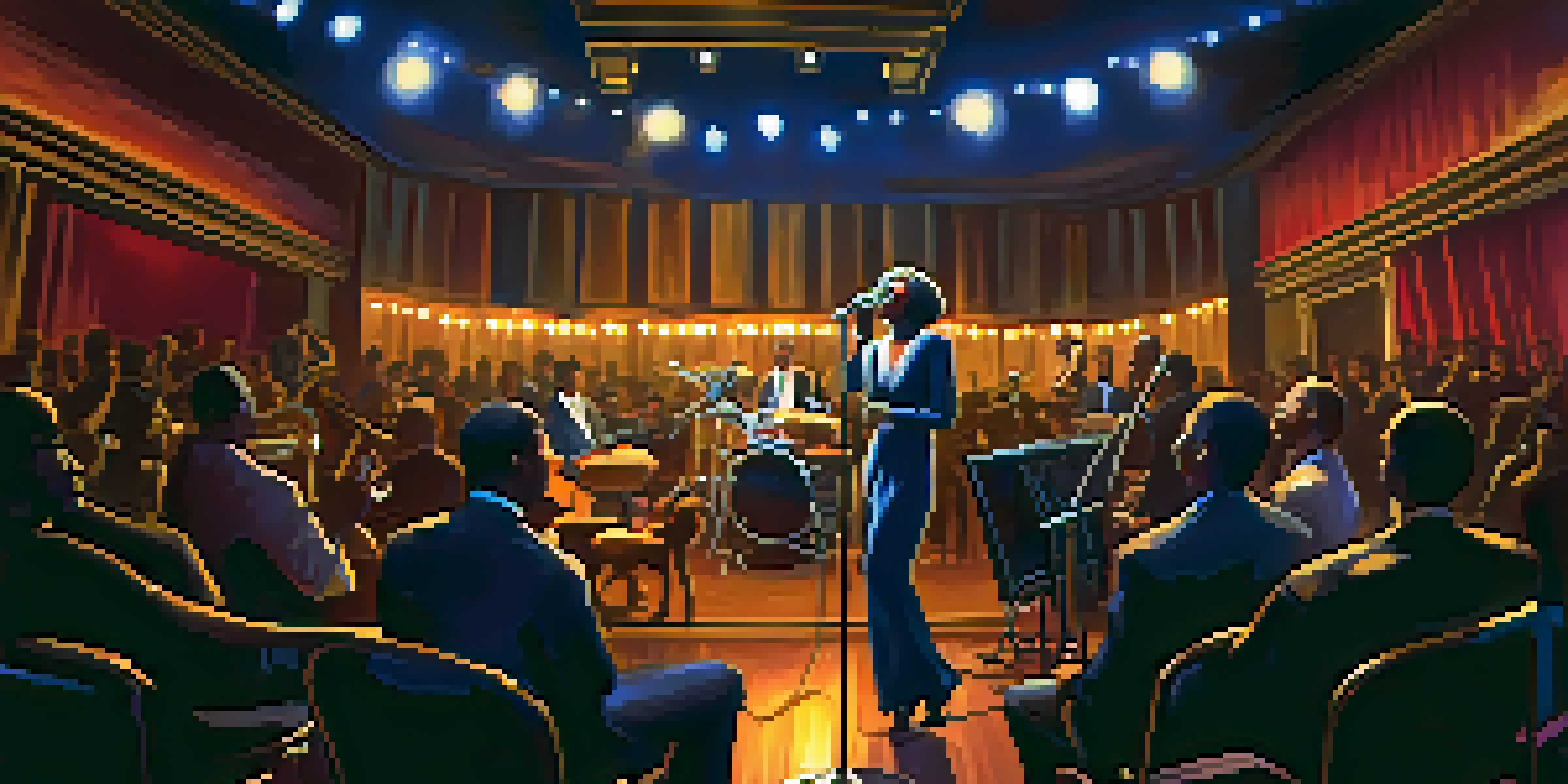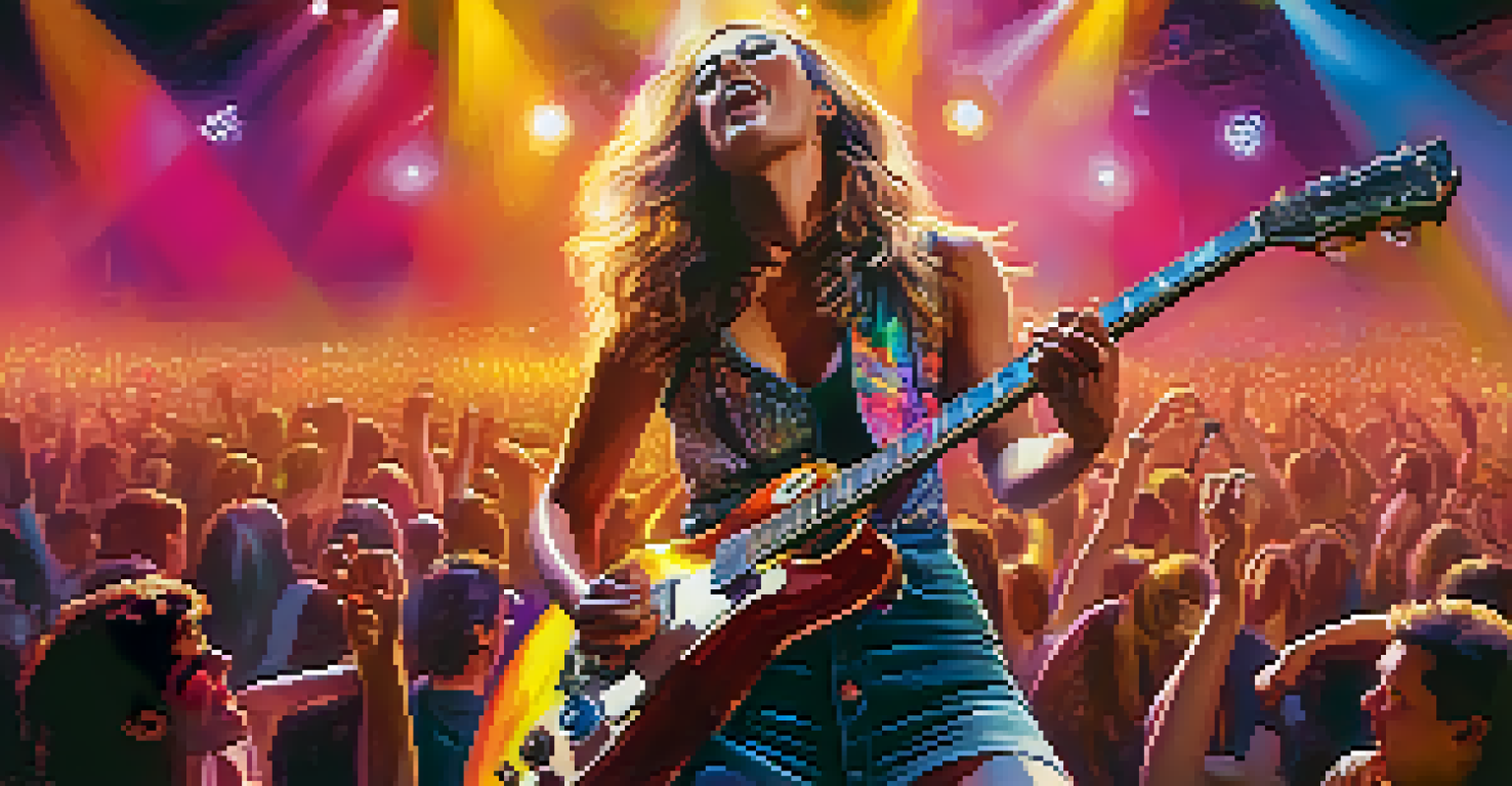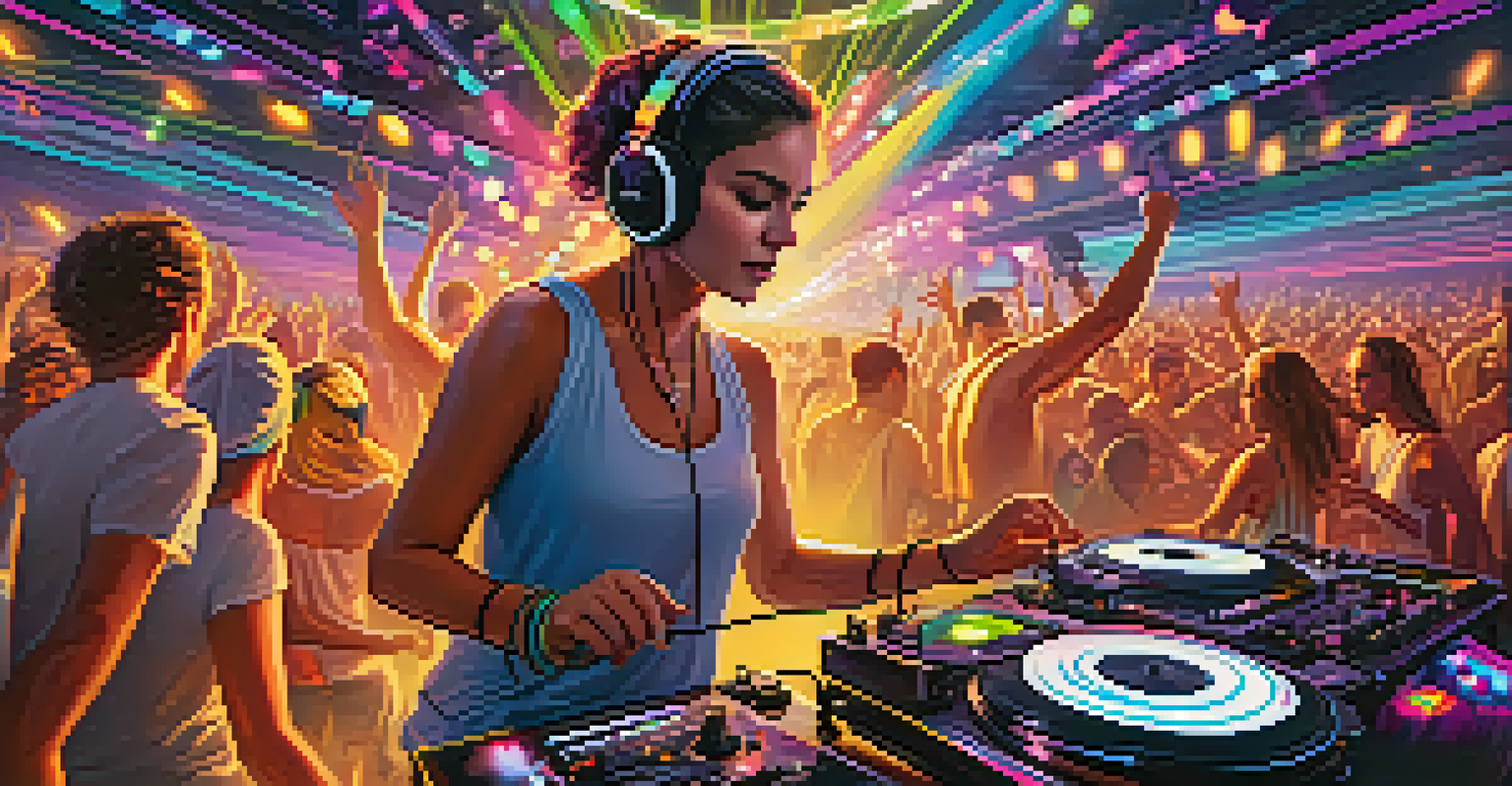The Role of Women in Shaping Modern Music Genres and Styles

Historical Context: Women in Music Before Modern Genres
Before delving into modern genres, it's essential to recognize the historical contributions of women in music. From the powerful voices of jazz singers to the folk traditions passed down through generations, women have always played a vital role. These early influences laid the groundwork for the diverse styles we enjoy today. Understanding this context helps us appreciate how far women have come in the music industry.
Music is an outburst of the soul.
For instance, artists like Bessie Smith and Billie Holiday not only shaped jazz but also inspired countless musicians who followed. Their emotional depth and unique styles resonated with audiences, paving the way for future generations of female artists. This historical perspective highlights the significance of women's roles in the evolution of music, setting the stage for modern genres.
Moreover, women's involvement in music during these early years was often overlooked, yet their impact was profound. Today, we can see a clearer picture of how these foundational artists contributed to the rich tapestry of modern music, encouraging us to recognize and celebrate their legacies.
The Emergence of Rock and Pop: Women Breaking Barriers
The emergence of rock and pop in the mid-20th century marked a significant turning point for women in music. Icons like Janis Joplin and Joan Jett not only brought their unique sounds to the forefront but also challenged societal norms. Their fearless personas and groundbreaking performances inspired other women to pursue careers in the industry. This shift not only redefined the music scene but also empowered a generation of female musicians.

Janis Joplin's raw emotion and powerful voice became anthems of liberation, while Joan Jett's rebellious spirit showcased the potential of women as rock stars. These artists carved out a space where women could express themselves authentically, ultimately changing the landscape of music. Their contributions helped pave the way for future female artists across multiple genres.
Women Shaped Music's Early Foundations
Historical contributions from women in music have laid the groundwork for modern genres, highlighting their vital roles in shaping the industry.
As rock evolved into various sub-genres, women continued to push boundaries. From punk to alternative, female musicians consistently demonstrated their ability to innovate and influence, proving that their voices matter in every corner of the music industry.
Hip-Hop and Rap: Women Redefining the Narrative
Hip-hop and rap are genres that have seen significant contributions from women, often challenging stereotypes and redefining narratives. Pioneers like Missy Elliott and Queen Latifah broke through the male-dominated scene with their unique styles and powerful lyrics. They addressed issues such as empowerment, identity, and social justice, resonating with audiences worldwide. Their influence has paved the way for a new generation of female rappers.
I think women are definitely the more powerful gender because we can give birth.
Missy Elliott's innovative approach to music videos and production showcased not only her talent but also her creativity, setting new standards in the industry. Meanwhile, Queen Latifah's lyrical prowess and activism brought attention to important social issues, merging music with a powerful message. Together, they have transformed hip-hop into a platform for women's voices.
Today, artists like Cardi B and Nicki Minaj continue this legacy, using their platforms to inspire and empower. They exemplify how women in hip-hop are not just participants but leaders, influencing the genre's direction and challenging norms, all while carving out their own spaces in the industry.
Electronic and Dance Music: The Rise of Female Producers
The rise of electronic and dance music has opened doors for female producers, allowing them to shine in a field that was traditionally male-dominated. Artists like Sophie and Grimes have not only created groundbreaking sounds but have also redefined what it means to be a woman in electronic music. Their innovative techniques and unique styles have challenged conventions and inspired many.
Sophie, known for her experimental approach, has influenced the sound of contemporary pop and electronic music, proving that women can lead in production and creativity. Grimes, with her eclectic style and DIY ethos, has shown that authenticity can resonate with audiences, regardless of genre. These artists are reshaping the landscape, encouraging more women to pursue careers in music production.
Female Artists Redefining Genres
From rock to hip-hop, women like Janis Joplin and Missy Elliott have broken barriers and transformed their respective genres, inspiring future generations.
As more female producers emerge, the electronic music scene continues to diversify. This shift not only enhances the genre but also contributes to a richer musical experience for audiences, demonstrating the importance of women's voices in all aspects of music creation.
Country Music: Women’s Narratives and Storytelling
In the realm of country music, women have long been celebrated for their storytelling abilities. Artists like Dolly Parton and Loretta Lynn have shared personal narratives that resonate with listeners, often addressing themes of love, heartbreak, and resilience. Their authentic lyrics and heartfelt performances have shaped the genre and inspired countless artists, making them icons in the industry.
Dolly Parton's ability to blend catchy melodies with poignant storytelling has made her a household name. Meanwhile, Loretta Lynn's candid approach to challenging societal norms through her music has empowered women to voice their experiences. Both artists exemplify how women's narratives can bring depth and authenticity to country music.
The rise of contemporary female country artists, such as Kacey Musgraves and Miranda Lambert, continues this tradition. They infuse modern themes and perspectives into their music, showcasing the evolution of country while honoring its roots. This blend of tradition and innovation underscores the vital role women play in shaping country music today.
Indie and Alternative Music: Women as Innovators
Indie and alternative music have become a vibrant space for women to express their creativity and push artistic boundaries. Artists like Björk and Fiona Apple have carved out unique niches, using their music to explore complex emotions and societal issues. Their willingness to experiment with sounds and styles has inspired many and fostered a sense of community among female musicians.
Björk's avant-garde approach to music and visuals has made her a trailblazer, encouraging others to embrace unconventionality. Similarly, Fiona Apple's introspective lyrics and distinctive sound have resonated with listeners, proving that vulnerability can be a powerful artistic tool. These artists have paved the way for future generations to explore their identities through music.
A Diverse Future in Music
Today, women across various genres are increasingly influential, driving innovation and enriching the musical landscape with their unique perspectives.
As the indie and alternative scenes continue to grow, more women are stepping into the spotlight. This shift not only enriches the genres but also highlights the importance of diverse voices in music, showcasing the creativity and innovation women bring to the industry.
The Influence of Women in Music Today: A Bright Future
Today, the influence of women in music is more prominent than ever, with a diverse array of artists shaping the industry across genres. From chart-topping pop stars to groundbreaking indie musicians, women are at the forefront of musical innovation. This shift reflects a broader cultural change, recognizing the importance of representation and inclusivity in music.
With platforms like social media, women have greater access to share their music and connect with audiences. This democratization of the industry has led to a surge of female talent emerging from all corners of the globe. Their unique perspectives and experiences enrich the musical landscape, making it more vibrant and diverse.

As we look to the future, it’s clear that women will continue to play a pivotal role in shaping the sound of modern music. By supporting and celebrating female artists, we can help ensure that the industry remains a space where creativity flourishes and diverse voices are heard.